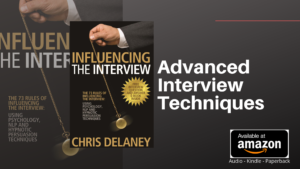Most Commonly Asked Interview Questions for a Career Advisor
The IAG – information, advice, and guidance sector has fluctuated over the past 15 years in terms of job opportunities due to various economic and political decisions. More recently, especially in the career advisor niche of IAG, there has been a recent rise in demand for qualified and experienced career advisors.
Schools, colleges, 6th forms, and higher educational institutes have been recruiting level 6 IAG career advisors after the government launched the GATSBY benchmark scheme.
In the main, most educational institutes have a simple recruitment process that consists of an application process followed by a 1-2-1 or panel structured job interview.
Some high schools also ask applicants to deliver a real assembly or careers lessons, especially when this task will be a common duty once employed. For tips on delivering presentations click here: how to deliver a job interview presentation.
For more career advisor interview questions and answers, read: Top 8 career advisor interview questions and answers
10 Interview Questions for a Career Advisor
The career advisor job interview will last, on average for 45 minutes. The interview is often conducted by a member of the senior leadership team.
Below is a list of commonly asked career advisor interview questions and a quick explanation of how to approach each question. In addition, you can take advantage of the job interview coaching package and get coached by a highly experienced and qualified career advisor.
Can you tell me a little bit about yourself?
- First, state your highest IAG qualification and any additional degrees.
- Summarise your collective years working as a career advisor and/or IAG worker
- Explain any expertise. This could include working with SEND pupils, previously working as a social worker or this could include having a list of employer that except work experience
- End the answer by talking about your passion for education and careers.
What is your experience in IAG?
- When asked a follow-up question about direct IAG experience, be sure to talk about the specific experiences that you have had.
- Initially state the combined years working as an IAG worker and then break this down into specifics, “I have 10 years experience as an IAG worker, 5 of these in high school 3 in a 6th form and 2 in a HEI”
- Talk about delivering 1-2-1 sessions, group workshops, conducting assemblies, and delivering in classrooms and virtually.
- Explain the IAG theories and models that you use in your sessions share data on the school outcomes (NEET figures, progression data, etc)
- Go on to discuss collaboration with external services, including social services and safeguarding organisations.
What is the difference between advice and information?
- Discuss the various ways information is sourced and given to a client or service user
- Explain how you check the accuracy of the information and in what type of situations you would give information (not advice)
- In the second half of the answer, explain when advice and guidance in given to a client
- Give examples of guiding a client and what theories or tools this involved.
How do you challenge clients?
- Explain how many clients have limiting beliefs and the various ways people are influenced to choose a career goal (happenstance, peers, locality)
- Talk about the common career goals pupils often discuss and how many people aren’t aware of the high number of potential career opportunities
- Explain which questions and questioning techniques you use to challenge a client while keeping rapport
- Talk about being impartial and the reason you challenge a client is to help them reflect on their choices
Why is LMI so important to a career session?
- LMI – local market information is key to impartial careers advice as the data can help a client make a decision
- Discuss where you source your LMI from (the government papers are worth quoting here)
- Explain how you share LMI with pupils and share an example of the impact of using LMI in an IAG session
- Also, talk about growth and declining job sectors and how technology, globalisation, and politics all influence the job market
How do you handle a client with unrealistic career goals?
- Examples are best used here. Explain the unrealistic goal, pointing why the goal was unachievable – as an example a student wanting to be a doctor but has no GCSE in Maths, English, or Science
- Discuss the people lacking the required entry requirements can return to education and complete Btecs, access courses, etc but sometimes the role of an IAG career officer is to help the client make a realistic choice for their current next steps and expectations
- Explain how you share information such as job descriptions and course entry requirements to prove the level required to enter that specific industry
- Talk about looking at new options and how you ask for the client’s opinions
- and how in the end your support the client to make a choice rather than forcing a choice on them
Why is impartiality a key part of an advice series?
- Impartially is key in career guidance, as it ensures that the advice given isn’t designed to sway an individual. Instead, it leads to informed choice making.
- Explain how you ensure that your advice is impartial. State the steps you take to research all options and what development and training you undertake to help increase your knowledge to better support your clients.
What are the pro’s and con’s of an apprenticeship versus college/university?
- Dont fall into the trap of promoting one option over another. Remember career advisors are impartial.
- Instead, debate the two options. As an example, a university course requires a student load payment but an apprenticeship is fully funded. On the other hand, apprenticeships a few and far between compared to the number of HE courses.
- Discuss and debate at least 3 pro’s and con’s and then end by stating how you focus on providing facts and guiding the client to make an informed choice rather than discussing your own opinions.
Do you have any questions for me?
- What is the school’s NEET percentage/progression numbers
- How does the school embed careers into all lessons?
- What, if any, are the gaps in the career programme?




